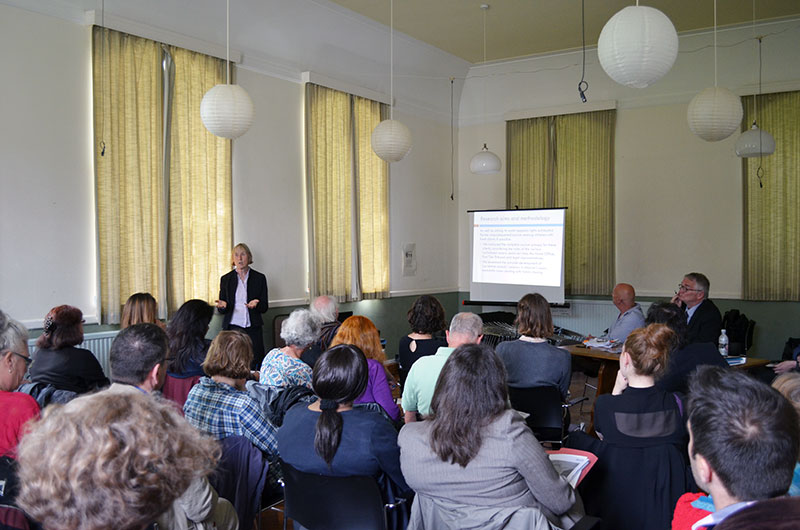A Kent Law Clinic research report has been welcomed by local organisations working with young asylum seekers at a public meeting in Canterbury.
The report entitled, How children become ‘failed asylum-seekers’ points to Home Office legal errors and poor quality legal advice that have impacted the way young people’s asylum claims are handled.
Written by Clinic staff Sheona York, a specialist asylum and immigration solicitor, and Richard Warren, an experienced legal aid immigration caseworker, the main aim of the report is to improve outcomes for children seeking asylum in the UK.
More than 50 people attended the public meeting at which the report was officially launched, including representatives from Kent Refugee Action Network, Kent Refugee Help and the Red Cross.
Children’s Commission Principal Policy adviser Adrian Matthews and Sheona York both spoke at the meeting, reiterating the need for the Home Office and Tribunal judges to follow detailed official guidance setting out how children’s asylum claims should be handled. They also called for local authorities to be given a clear duty to secure high-quality legal advice on immigration status for every child arriving in the UK.
Sheona York said: ‘The Clinic’s concerns were echoed by Adrian Matthews, who highlighted young people’s crucial need for good quality legal advice, and especially that young people should be urged to appeal a refusal of asylum while they are still under 18.
‘Participants also noted the effects on young people of the withdrawal of legal aid from immigration problems apart from the asylum claim itself, leaving them unable to put forward claims based on their family and private life in the UK.
‘We called for a commitment from local authorities to pay for the legal work needed on young people’s cases which is no longer funded out of legal aid.
‘Significantly, most of those who attended the meeting are experienced in working with young people and young asylum-seekers in particular, whether as social workers, support workers, solicitors, barristers, and caseworkers, or have relevant academic and research experience. The discussion following the presentations was purposeful and practical, seeking strategies and ways of working together which we hope will improve outcomes for young asylum-seekers in Kent.
‘The meeting marked a determination to work together to achieve concrete improvements in the way young people’s asylum and immigration claims are handled, and gives real hope and energy to those working on these issues’.
Attendees were grateful for the opportunity to hear the findings of the Clinic’s report. After the meeting, a spokesman for Kent Refugee Help said: ‘A really revealing piece of research and a typically dynamic and engaging presentation!’
Other organisations represented at the meeting included: Asphaleia; Elder Rahimi Solicitors; Kent Social Services; Migrant children’s Legal Unit, Islington Law Centre; Refugee Council; Samphire; South East Strategic Partnership for Migration; Voice; Wai Leung Solicitors; and Youth on the Move.
Copies of the report will be sent to local immigration officers, and Clinic staff, working in collaboration with local and specialist solicitors, and with the Young Refugee Stakeholder Group, will actively pursue the report’s recommendations. Initially this will involve seeking an early meeting with Kent Social Services and ensuring that as many young people as possible, who have not yet appealed, are given appropriate legal advice and assistance.

